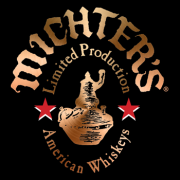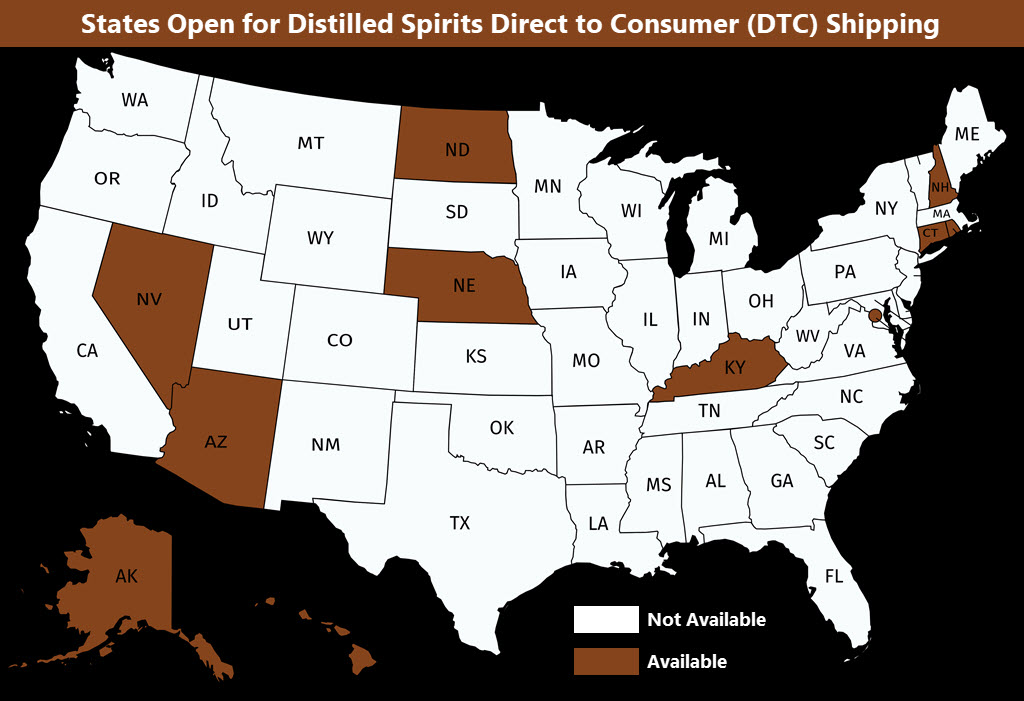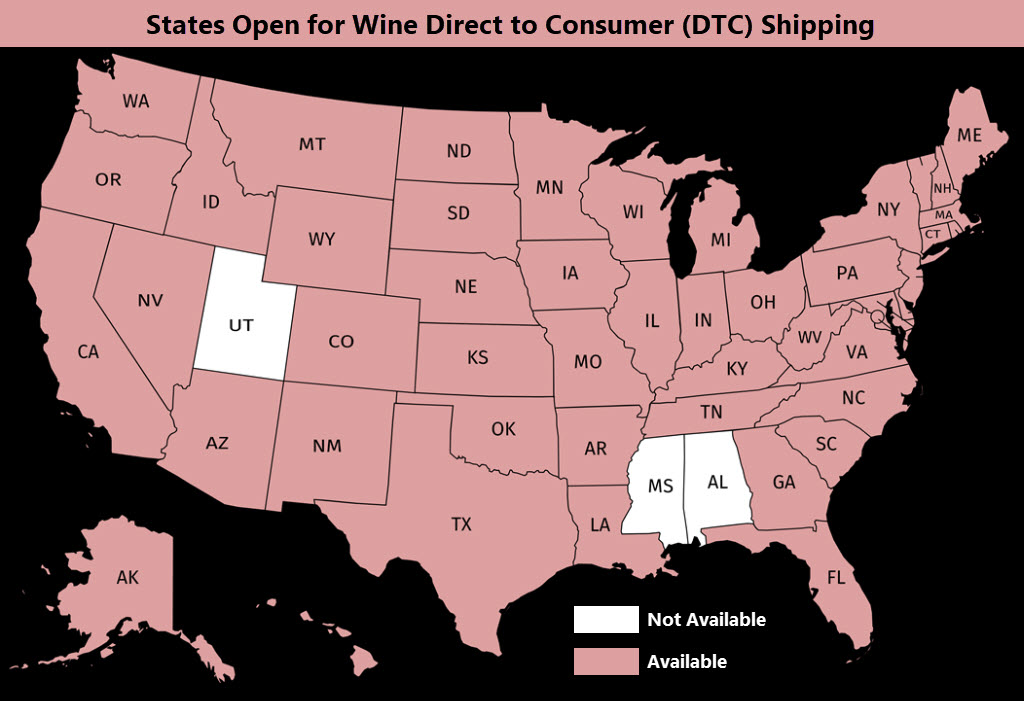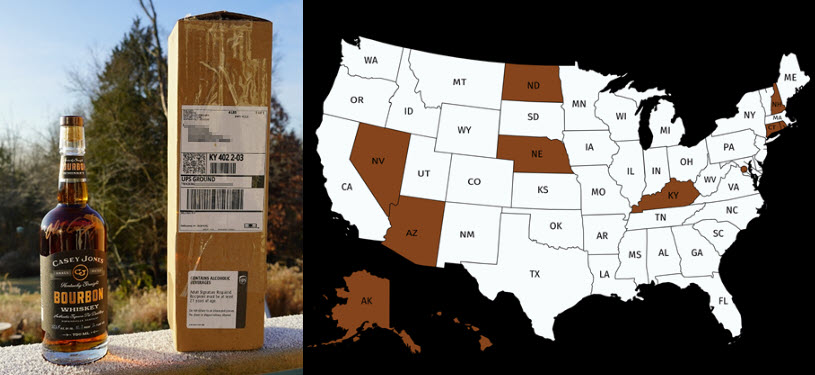
Christmas arrived a little early for Kentucky Bourbon makers and their fans this year as the first legal Direct-to-Consumer (DTC) distilled spirits order was placed online in the state.

Distilleries across the country have been in search of a level distribution playing field for many years. Ever since Repeal Day on December 5, 1933 the governance of beer, wine and spirits have all taken different paths. For example, wineries have been able to ship direct to consumers to the majority of states for many years now (and it accounts for a huge portion of their revenue). In general wineries in 47 states plus Washington, D.C. can ship directly to their fans. Distilled spirits on the other hand is treated completely different until now. The new rules are only in a few states but it’s a start.
‘Twas the week before Christmas, when all through the house
not a cocktail was stirring, not even a Mouse Trap.
The stockings were hung by the chimney with care,
in hopes that Kentucky Bourbon soon would be there.
On March 26 of this year the Kentucky state legislature approved HB 415 that allows distilleries to sell distilled spirits Direct-to-Consumers, commonly referred to as DTC, “including those transactions taking place in person, electronically, online, by mail, or by telephone.” This was a huge win for distilleries and consumers. In a strange twist of fate, the bill became law without the Governor’s signature. It’s highly likely Kentucky’s Governor would have signed the bill for the states signature industry but at the time he was knee deep in trying to lead the states Corona virus efforts. So, without his signature or veto HB 415 automatically became law 10 days after passing through both chambers of the legislature.
Kentucky Distillery Accepts its First Direct-to-Consumer (DTC) Online Order
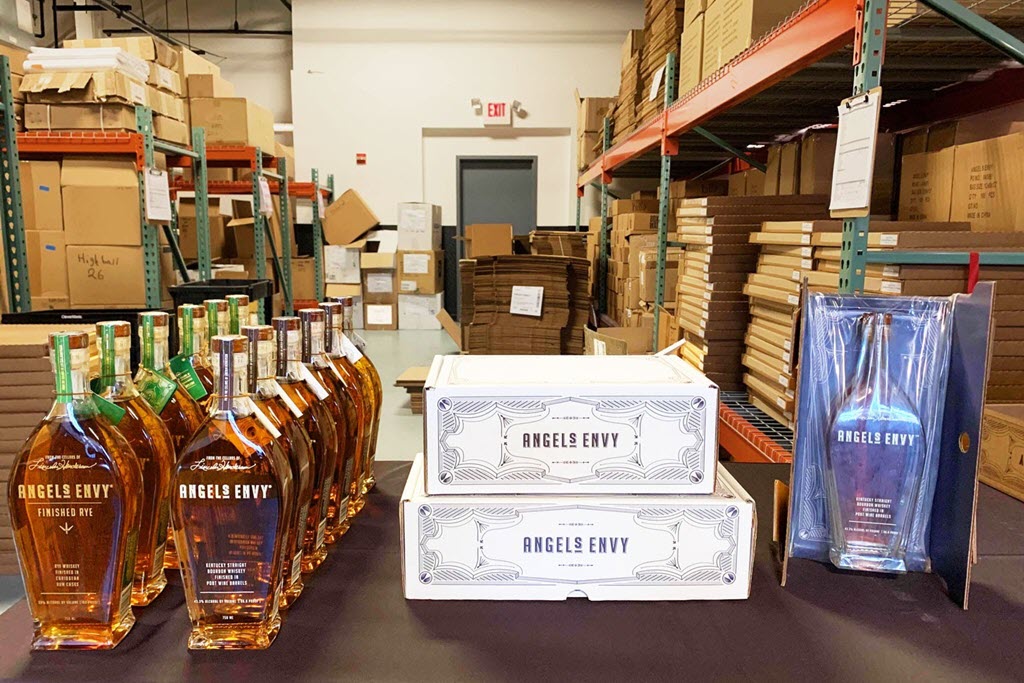
As with most things in life the devil is in the details and when it comes to the selling, let alone shipping of the distilled spirits, the devil is in the details. It took several months after the law was enacted to agree on the shipping and fulfillment guidelines but the details that will protect distilleries, shippers and consumers finally became clear and the time to accept online, electronic and phone orders has finally arrived. On December 14th Representative Adam Koenig, Interim Co-Chair of the Licensing and Occupations Committee, broke the bourbon barrier and made history when he placed the first online order under the provisions of Kentucky’s new direct to consumer alcoholic beverage shipping law.
Koenig sponsored legislation making this consumer-driven change possible during the 2020 Regular Session. The bill allows Kentucky distilleries, wineries, and breweries to ship products to areas of the state that allow the sale of alcohol as well as other states with reciprocal laws. Koenig placed the order just minutes after the committee approved Alcoholic Beverage Control regulations to implement the bill.
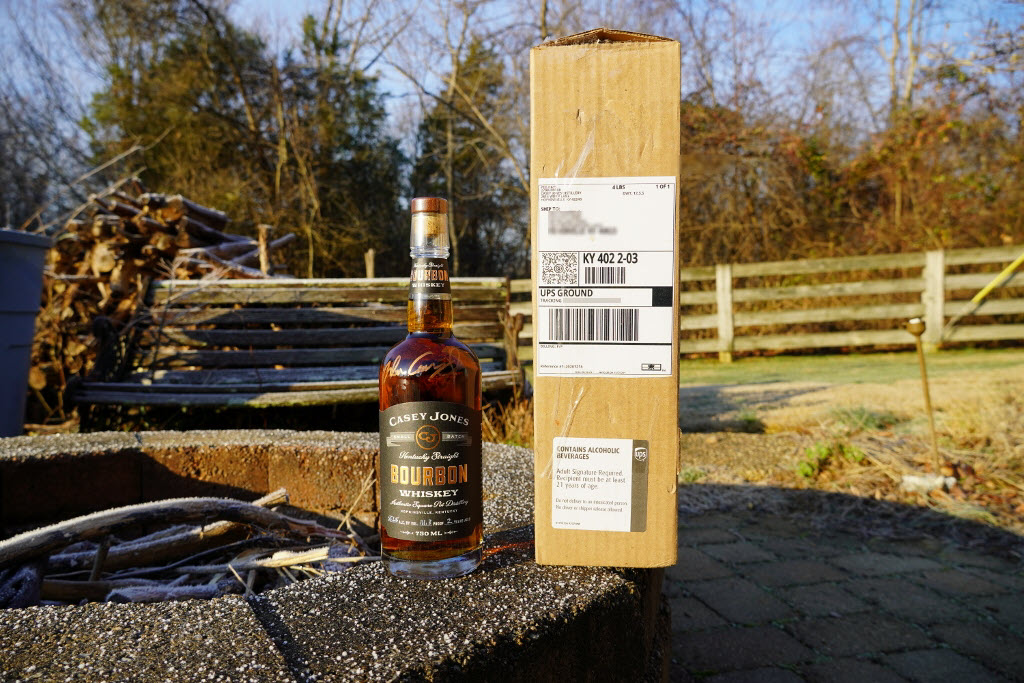
“I am honored to be able to place the first order. Hitting ‘complete purchase’ symbolized so much more than buying a great bottle of bourbon. For Kentucky citizens, it means both convenience and expanded options to choose from,” Koenig said. “It is an extraordinary day for the men and women who work at our distilleries, wineries, and breweries as well as Kentuckians who want a bourbon or glass of wine with dinner.”
Direct to Consumer Shipping ‘To’ and ‘From’ 10 Reciprocal States
Under the provisions of HB 415, Kentucky-based producers can ship products to other states if those states have reciprocal laws that allow products to be shipped there. A distillery must purchase a distribution license in each state they wish to do business with and follow all the laws, regulations and pay taxes in those states. Out-of-state producers can also ship to Kentucky consumers if their respective state laws permit them to do so. For example, if a Kentucky resident would like to purchase bourbon with castoreum from beaver castor sacs from Tamworth Distilling in New Hampshire they can now do that assuming the out of state distillery gets a license to sell into Kentucky. Prior to HB 415, limited direct to consumer shipping was available but it required an in-person transaction meaning a customer had to be at the distillery to have something shipped to their home. That requirement is no longer necessary.
Reciprocal states include Alaska, Arizona, Connecticut, Hawaii, Kentucky, Nebraska, Nevada, New Hampshire, North Dakota, Rhode Island and Washington, D.C. as well as military bases. One thing to point out for consumers, just because a distillery ‘can’ ship into another state it does not mean they ‘do’ ship into other states. The details of the rules vary widely by state. For example, Arizona has a clause in their law that says only distilleries making less than 20,000 proof gallons of spirits may ship into the state. That means craft distilleries will be able to ship from Kentucky to Arizona but some of the larger heritage distillers will be precluded from shipping to Arizona for now.
How Big is the Direct to Consumer Shipping Opportunity in the U.S.?
Only time will tell how big the DTC channel will be for distilled spirits as it is just getting started with only about 20% of states participating. And even at that level, not all distilleries will choose to sell in every possible state.
For comparative purposes the DTC channel for wineries is actually considered a mature channel. There are now less than a handful of states that do not allow direct shipping from wineries. With the passing of HB 415 Kentucky can now be counted on the approved list leaving only Alabama, Mississippi and Utah. According to data from Sovos ShipCompliant and Wines Vines Analytics the DTC wine channel grew by 7.4% in 2019 to $3.2 billion. To help put this in perspective Statista is projecting that the entire U.S. Whisky category will be $16.6 billion in 2020. They are projecting the entire spirits category to have $76.8 billion in total revenue.
These initial 10 states are a great start but they are just the tip of the iceberg before there is a truly level playing field with the wine industry.
Kentucky Direct to Consumer Spirits Shipping Highlights
Keeping up with all the rules, regulations, taxes, fees and wet/dry counties down to the zip code gets very complicated very quickly. That’s why companies like Spirits 360 Solutions has partnered with many of these distilleries. While others have chosen to add services on to their existing ecommerce solutions that may have originally been designed for the sale and fulfillment of hats, t-shirts, glasses, etc. Distillers can find fulfillment solutions in our Supplier Directory here.
Here are the general guidelines.
- Consumers can place orders in person, electronically, online, by mail, or by telephone.
- A licensed distillery may ship all types of alcoholic beverages that the licensee is authorized to sell.
- The person placing the order must be at least 21 years of age.
- The recipient of the package must be at least 21 years of age and must show proof of age prior to transferring possession of the package.
- The individual delivering the package must obtain the signature of the recipient of the shipment.
- The individual who receives and signs for the alcoholic beverages is not required to be the consumer who purchased the alcoholic beverages.
- The shipping package must be clearly labeled with the words, “CONTAINS ALCOHOL: SIGNATURE OF PERSON AGE 21 OR OLDER REQUIRED FOR DELIVERY”.
- The shipment must be sent via an approved licensed common carrier. Right now orders are going through UPS but other carriers may be added later.
- Distillers are responsible for paying all applicable sales, use, excise and wholesale taxes and regulatory fees.
- Distillers can ship up to 10 liters of distilled spirits per consumer per month.
Distillers can create affinity or DistilleryOfTheMonth.com club offering recurring orders as long as they follow the above guidelines. Most distillers we talked with have this on their radar but just want to accomplish the basics of shipments first. More details on the guidelines can be found via the Kentucky Distillers’ Association here.
Creating a Distilled Spirits Direct to Consumer Shipping Standard
“This is bigger than Kentucky. We are now a national model for how to expand opportunities,” said Koenig. “These changes have been a long time coming but I think it is particularly meaningful that it is implemented now, after so many of these companies have stepped up to manufacture hand sanitizer and other products to help stop the spread of the COVID-19 virus. They answered the call in a powerful way.”
The new law also includes several provisions to ensure the proper collection of taxes and the state’s wet/dry laws still prohibit the sale of alcoholic beverages in “dry” communities. To prevent sales to minors, ID checks are required at the point of sale and at delivery. All shipments also must be clearly marked as alcohol and require an adult to provide valid identification and a signature at delivery.
Koenig’s cosponsors included Speaker of the House David Osborne of Prospect, House Majority Whip Chad McCoy of Bardstown, Rep. Thomas Huff of Shepherdsville, Rep. Kevin Bratcher of Louisville, and Rep. Mark Hart of Cynthiana.
“Now that I have placed the order, I am definitely looking forward to raising a glass and toasting this new chapter in our state’s alcoholic beverage control laws,” Koenig added.
View all Kentucky Distilleries.
Please help to support Distillery Trail. Sign up for our Newsletter, like us on Facebook and follow us on Instagram and Twitter.




